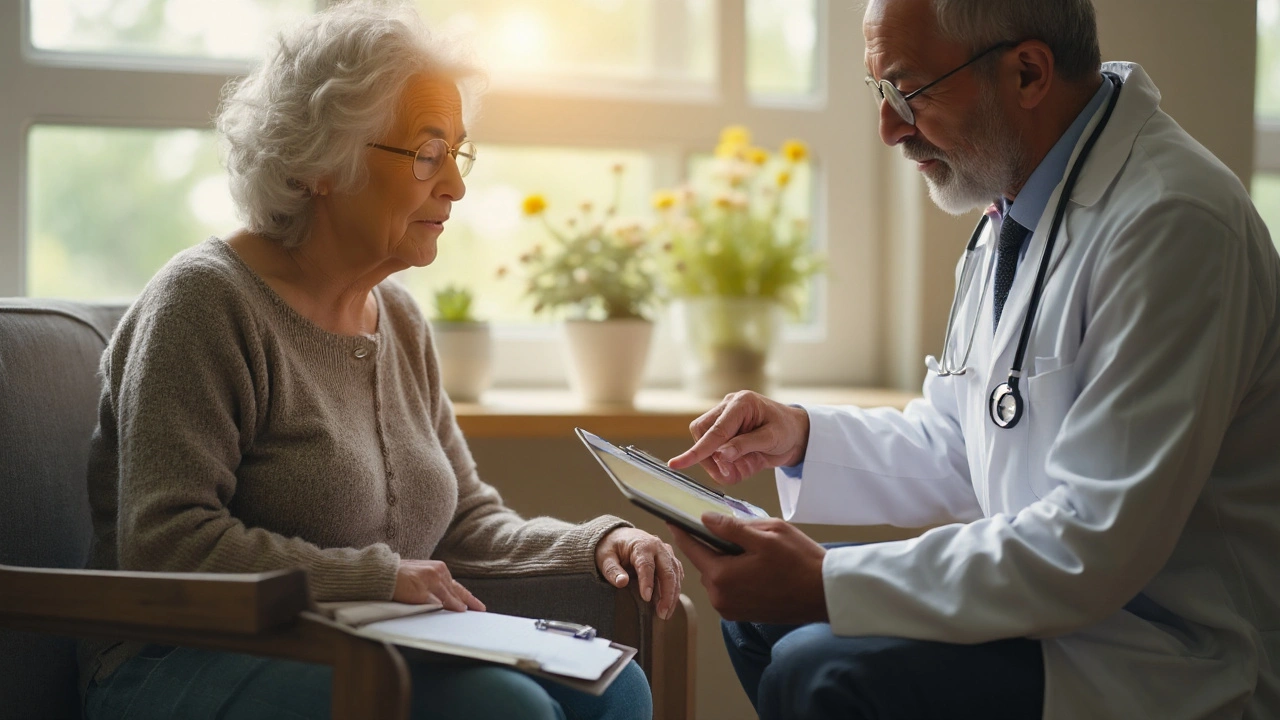Aging Population: Practical Health Advice for Seniors
People are living longer than ever, and the number of seniors is rising fast. That means more families are dealing with age‑related health questions every day. This guide gives you straight‑forward tips you can use right now to keep older adults feeling their best.
Common Health Challenges for Older Adults
When you get older, a few health problems show up more often. Joint pain, high blood pressure, and mild memory lapses are the usual suspects. Diabetes and heart disease also become more common, so regular check‑ups are a must. Keeping an eye on weight, staying active, and monitoring blood sugar levels can stop small issues from turning big.
Another big piece of the puzzle is medication. Seniors often take several prescriptions, and mixing them incorrectly can cause serious side effects. Always ask a pharmacist to double‑check new drugs, especially over‑the‑counter pills or supplements. A simple medication list on your fridge can save a lot of confusion.
Smart Ways to Manage Medications
First, use a pill organizer. It separates doses by day and time, so you never miss a dose or take the wrong one. Second, set phone reminders – a quick buzz is easier than trying to remember everything. Third, keep a notebook with the name, dose, and why you’re taking each drug. Show it to your doctor at every visit.
If you buy meds online, pick a reputable pharmacy that requires a prescription. Look for sites that show a licensed pharmacist’s contact info and clear return policies. Trustworthy online stores also give you access to patient reviews and dosage guides, which can be a real help when you’re unsure.
Remember, not every drug works the same for every person. Some seniors feel dizzy on blood pressure pills, while others might have stomach upset with certain pain relievers. If a side effect feels off, talk to your doctor right away – adjusting the dose or switching medication can make a big difference.
Beyond meds, lifestyle choices matter a lot. Aim for at least 30 minutes of light activity most days – a walk around the neighborhood, gardening, or gentle stretching. Good sleep, balanced meals, and staying socially active also protect against depression and cognitive decline.
Finally, keep important health info handy: your doctor’s name, emergency contacts, allergies, and a list of current medications. Store this in a place family members can find quickly if needed.
Staying healthy as you age isn’t about big changes; it’s about small, consistent actions. Use a pill organizer, stay active, and choose reliable sources for medication. With these steps, the aging population can enjoy a better quality of life and fewer health scares.
Lymphoma in the Aging Population: Key Challenges & Practical Considerations
Explore how lymphoma affects older adults, the unique medical hurdles they face, and actionable strategies for clinicians and caregivers.
About
Health and Medicine
Latest Posts


OTC Allergy Relief: How to Choose the Right Antihistamine and Dose for Your Symptoms
By Orion Kingsworth Nov 22, 2025

Why Prescription Drug Prices Are So High in the United States: The Real Reasons Explained
By Orion Kingsworth Feb 6, 2026

